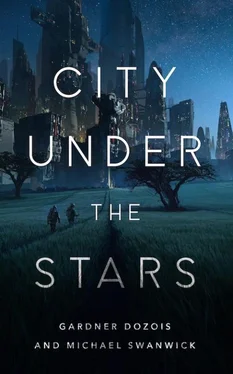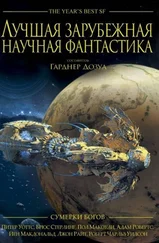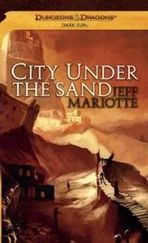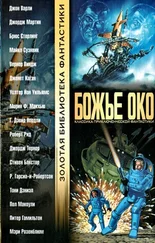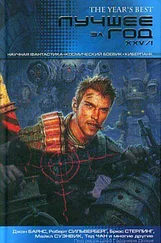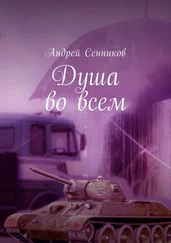A muffled jumble of sound: voices.
Oristano would be alone.
A shrill laugh, silence, the sound of bedsprings.
Hanson hefted the shovel in his hands.
The dust tickled his nose and tiny spiders scampered across his arms, across his face, like the touch of gentle, invisible fingers. They were the shy, albino spiders that inhabit dusty corners in dark buildings and spin gossamer out of disuse—they never saw the sun. They used Hanson for a highway, washing over him in a waterfall of velvet feet while he sat in the shadows and listened to the factory: the massive, deep-throated beat of pistons far below reechoed through every joint and seam of the building, conducted through cement and wood, shaking the room, shaking his blood, shaking the teeth in his head, shaking the brain inside his skull, boom doom , boom doom , boom doom , boom doom , until he was somehow on his feet, shaking uncontrollably, convulsively squeezing wood to keep it in his hands, shaking, being shaken, jarred, jostled, jolted, being frog-marched toward the door in a lurching stiff-legged stride, trying to remember that he had to wait, wait , although it was hard to remember what he had to wait for. He stopped just outside the door, fingertips resting on the wood, wondering why it didn’t explode inward under the force of the pressure behind him, why it didn’t shatter and fly to flinders, as he was shaken by the surge of the world that wrenched his bones out of his body, boom doom , boom doom .
Inside, voices again, louder now, another laugh, footsteps going away, the slamming of another and more distant door, a single set of heavy footsteps returning.
Suddenly smooth as silk and steady as skin, as if he had instantly shifted into a different gear, Hanson reached out and opened the door.
The room was dingy and cluttered: a table, two chairs, a cot, a washbasin, a cabinet. Oristano’s broad back was toward the door—he had not heard it open. He was rummaging in the cabinet, taking out a hypodermic needle and a rusty spoon. An ancient revolver, symbol of his position and authority, sat in its holster on the table, three feet away.
Now , said Hanson’s blood, while his back is turned . But instead he heard his own voice, as if from a great distance, speaking Oristano’s name aloud, as a rock might speak, or ice.
Oristano knew death when he heard it. Without bothering to look around, he whirled and snatched for the table. His shadow swung and scurried like a crab behind him. He was awesomely fast for a man of his bulk. He had the gun in his hand and had brought it halfway around to bear before Hanson’s shovel, swung in a short horizontal arc of immense force, crushed his head.
The force of the blow spun Oristano in a misty explosion of blood and brains, and hurled him heavily against the table, which splintered and collapsed. The table and Oristano went down together, in a tangle.
Except for the meaty slap of the shovel and the crack of breaking wood, there had been no sound.
The hypodermic needle teetered on the edge of the cabinet, then toppled very slowly to the floor. It shattered with a tiny glass cry, like the breaking of a fragile dream.
Hanson stood motionless, holding the shovel. His arms tingled from impact, and a splinter had dug into his palm. The blow had nearly decapitated Oristano, and the body, in falling, had sprayed blood across half the room, the cot, the ceiling. Most of the spray had missed Hanson, but his face had been lightly, almost delicately, dusted with a fine sprinkling of droplets, as if he was a child playing at measles with garish red paint. He took one hand off the shovel and absently wiped at his eyes with his knuckles, smearing the blood. He continued to wipe at it, grinding it into his skin.
He looked down at Oristano’s body. With his killing blow, with the first touch of impact, the red light in Hanson’s mind had instantly gone out, leaving him with no purpose or plan, drowned in the paralytic black light of despair. Now he was like a man waking, stupid and desolate, from a particularly evil dream—or else like a man swimming down from the border of dream into another, even more troubled sleep, unable to wake although he knows that he should. The room around him seemed blurred and vague, his memory of the past hour even more vague; he remembered his actions as if another man had done them while he watched, only dimly able to guess at that man’s motives and feelings. Oristano’s bloated corpse filled him with surprise and horror. He felt no emotional responsibility for it as yet, no sense of it being a child of his hands, but it seemed so charged with outré significance, so remarkable and unnatural an object in itself, that it flooded him with superstitious dread: he could imagine the shattered, faceless man rising, confronting him, embracing him with cold arms, smothering him. Absorbing him tracelessly into its bulk.
And now there was a sickness starting deep inside, a spreading numbness that drove the room even further away. He shook his head stupidly, baffled as a bull. He couldn’t wake up. The room spitefully refused to change, to alter—it remained starkly and harshly the same, and he mired in the middle of it with murder in his hand and death all around. And now there was a noise, a scrape of wood on wood. Through numbing waves of nausea, he looked up.
Tac stood in the doorway: face bland as butter, eyes shrewd and malefic.
There was his doom, Hanson realized with tranced calm and logic. Tac was poised for flight, holding the door ready to slam after him; he was the entire length of the room away, on the other side of Oristano’s body; from that other door the main entrance of the shift room was only six paces distant, down a short corridor—even if Hanson should try to attack him, all Tac would have to do was slam the door and run out into the shift room, shouting for help. Long before Hanson could hope to catch up to him and silence him—if Hanson could get his numb, leaden body to move at all—Tac would have the place boiling with workmen, watchmen, State Inspectors. Escape would be impossible—they would run him down in seconds, subdue him, take him away. Then the gallows, the block, a bullet in the head, maybe a public stoning or the stake since this had been a dull season in Orange. No way out. No way to stop Tac, no way to talk him into silence. Tac would surely get a big promotion for turning Hanson in, and Hanson had nothing to bribe him with anywhere near the value. And to appeal to the charity of that sly, cruel creature would be like entreating fire not to burn.
All this in a second, Tac looming in the doorway, Hanson staring hopelessly at him across the tilted landscape of Oristano’s corpse. Then, before either man had a chance to move, Tac’s face suddenly changed: his slitted eyes widened enormously, huge with surprise; his cheeks puffed, his mouth gaped impossibly—all his broad face, all his stubby body seemed to swell, blowing up like a balloon, expanding like a pufferfish straining at the limits of his skin until it seemed certain he would explode and splatter. And then Tac went limp—ponderously he fell, first to his knees, then forward to his face, almost lazily, shouldering into death as a man settles into a warm and restful bed.
Gossard stepped into the room, behind Tac. There was a knife in his hand, and the blade steamed with new blood.
ORANGE IS A SPRAWLING, ugly town, situated a few miles west of the historic site of Old Orange, something to the north of what was once St. Cloud. It is made mostly of wood and fired clay, sunbaked mud, some sections of fine brick and iron put up during the fleeting prosperous decade of the Great Restoration when York was carving an empire out of the checkerboarded squabble of the northwest, before the fortunes of the State began to decline. It contains a large proportion of Utopian buildings, although few are completely standing, and only a very few are in anything resembling usable condition. It is primarily a trading town, serving as a funnel and middleman for the traffic between the Stabilities of Portland, Pitt, and the South, all of the trade that follows the main routes skirting the Wall of the City of God. It also contains what passes today for heavy industry, and is well-known for leather tanning and textiles. It is the third-largest city in York, and, since the destruction of Worcester, the most eastern of all the really big towns in the Human Domain, south of Portland.
Читать дальше
